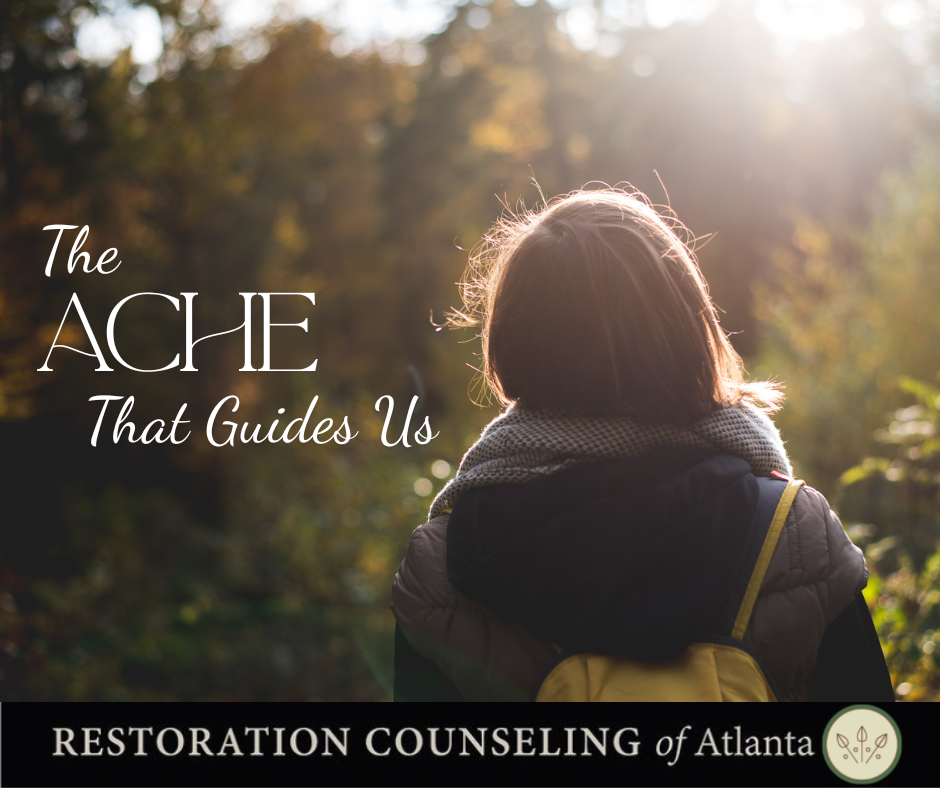It’s difficult to sit in the discomfort of wanting something that feels perpetually out of reach.
- I want to feel [happy, content, excited, loved], but nothing I do ever gets me there.
- I do not want to deal with this [pain, death, betrayal, difficult person], but it just keeps haunting me.
- If I were more [disciplined, talented, confident], I could be okay with myself.
- If I had more [money, time, space], I’d be more fulfilled.
- If people would just [understand me, listen to me, accept me, respect me], I wouldn’t feel so alone.
- If God would just [do this, grant me this, show me this, change this], I would be more encouraged to be faithful.
Perhaps some of these thoughts feel familiar. You may have tried to quiet the restlessness, fill the emptiness, or finally reach peace. Maybe you’ve chased achievements, distractions, or fleeting pleasures, only to find that nothing lasts. The sense of longing persists, weighing on the heart in ways that can feel almost unbearable.
This tension is captured in the story of Tantalus from Greek mythology. Tantalus stood in a pool of water beneath a fruit tree, yet whenever he reached for the water, it receded; whenever he tried to grasp the fruit, it lifted just beyond his fingertips. Like Tantalus, we sometimes find that the closer we come to what we desire, the more elusive it becomes.
And yet, what if the answer isn’t out there? What if the fulfillment we are looking for could be discovered by turning inward, moving back to ourselves? Turning inward doesn’t erase desire, but it allows us to notice the things that shape it. We can greet our longing with curiosity and compassion, rather than frustration or self-reproach. In this inward turn, restlessness can go from being a tormentor to a guide.
The ache of longing is part of being human. This ache is unavoidable, but it is also meaningful.
It signals the depth of what we were made to seek. It reminds us that life is not only about avoiding discomfort or achieving goals; it is about noticing what stirs our hearts, even when it is uncomfortable.
God is not upset by our desires. However, He cares about how we respond to them. Settling for empty pleasures instead of love, numbness instead of peace, superficial comfort instead of true fulfillment–these things don’t just matter to God, they create grief in our hearts too. Longing is not failure; it is a compass pointing toward what is real, life-giving, and worth pursuing. When we pay attention, it can teach us about our values, our needs, and the truths we sometimes try to avoid.
This inward reflection can take many forms. You might notice what thoughts or experiences trigger your restlessness. Perhaps a certain disappointment or unfulfilled expectation keeps resurfacing. You might ask yourself gentle questions: What am I truly reaching for? What fear or hope underlies this longing? Sitting quietly, journaling, or simply observing your thoughts can turn the ache from an enemy into a guide.
So here’s a gentle invitation: instead of pushing away the ache or filling it with temporary comforts, sit with it. Observe it. Let it teach you about what your heart truly seeks. Like Tantalus, we may feel the frustration of desire, but unlike him, we can learn from it. Our longing can show us a deeper path toward wholeness if we are willing to turn inward and attend to it with care.
Our longing is not a problem to fix. It is the quiet, persistent nudge that tells us what matters most. And in learning to listen, to sit with ourselves honestly and tenderly, we may find that our deepest longings are simply echoes of the One who made us.
 Written by: Priscilla Parsons
Written by: Priscilla Parsons
priscilla@restorationcounselingatl.com
Priscilla Parsons (Roswell & Woodstock) is passionate about helping adults and couples navigate complex emotions, relational dynamics, and deep self-reflection. She works to uncover the root causes of distress, guiding clients toward lasting change by addressing unprocessed experiences. Rather than focusing on blame—whether toward self or others—she helps clients recognize the deeper patterns at play, fostering understanding and self-compassion as a foundation for meaningful change. She draws from attachment theory and complex trauma research to integrate tailored approaches to help clients reconnect with themselves and others. Her thoughtful and exploratory style creates space for clients to gain insight into how their experiences have shaped them and take steps toward healing.

